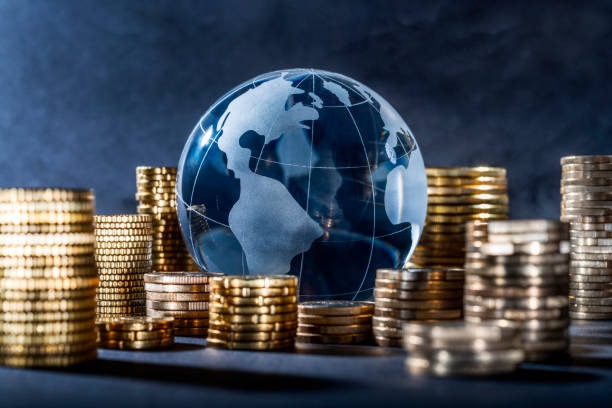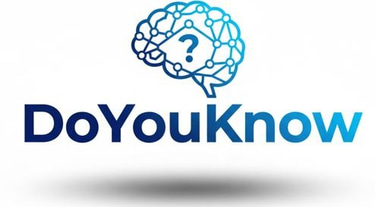Do You Know How the Global Economy Works
The global economy is a complex network that connects countries, businesses, and people worldwide. From international trade and financial markets to technology, globalization, and government policies, every factor plays a crucial role in shaping growth, jobs, and development. This article breaks down how the global economy functions, why it matters in everyday life, and what challenges and opportunities lie ahead in our interconnected world.
BUSINESS & ECONOMY
Do You Know Team
7/29/20253 min read


The world is more interconnected today than ever before. Every time you buy a product, invest money, or even use your smartphone, you are indirectly connected to the global economy. But what does the term “global economy” actually mean? In simple words, it is the system that links countries through trade, finance, technology, and policies. Understanding how this system works helps us make sense of everything from the price of groceries to global events like recessions or booms. Let’s dive deeper into the key aspects of how the global economy operates.
1. What Is the Global Economy?
The global economy refers to the international network of markets, industries, and governments that interact to produce, trade, and consume goods and services. It includes:
International trade of goods and services.
Global financial systems, including banks, stock markets, and investment flows.
Labor and migration, as people work across borders.
Technology and innovation, which connect markets instantly.
Essentially, it’s a giant system where one country’s growth or crisis can directly impact others.
2. The Role of International Trade
Trade is the backbone of the global economy. Countries export what they produce efficiently and import what they lack. For example:
India exports IT services but imports crude oil.
China exports manufactured goods but imports raw materials.
The U.S. exports technology and agricultural products.
This exchange creates interdependence. When global trade flows smoothly, economies grow; when disrupted (like during COVID-19), the entire world feels the shock.
3. Global Financial Markets
Another major part of the global economy is finance. Financial markets allow money to flow across countries in the form of:
Foreign Direct Investment (FDI) – when companies invest in other countries.
Stock markets – global investors buy and sell shares worldwide.
Currency exchange – daily trading of currencies like USD, Euro, Yen, and INR.
These flows provide capital for businesses but can also create vulnerabilities when markets crash.
4. The Power of Globalization
Globalization has made the world a “global village.” It connects economies in ways never seen before. Benefits include:
Access to cheaper goods and services.
Faster transfer of technology.
Greater opportunities for jobs and investment.
However, globalization also has downsides such as income inequality, loss of local jobs, and dependency on global supply chains.
5. The Role of Technology in the Global Economy
Technology is now the driving force of economic growth. The internet, artificial intelligence, blockchain, and automation have transformed how businesses operate. For example:
E-commerce allows small businesses to sell globally.
Digital banking makes cross-border payments easier.
AI and automation improve productivity but reduce manual jobs.
Technology has blurred national borders in terms of economic activity.
6. The Importance of Natural Resources
The global economy also depends heavily on natural resources. Oil, gas, minerals, and agricultural products are traded worldwide. A fluctuation in oil prices can impact transport, manufacturing, and even household budgets. Resource-rich countries often have economic advantages but may also face dependency risks.
7. International Organizations and Agreements
To regulate the global economy, many international bodies exist:
World Trade Organization (WTO) – manages trade rules.
International Monetary Fund (IMF) – provides financial support to struggling economies.
World Bank – funds development projects.
G20 & UN – bring together leaders to discuss policies.
Trade agreements like NAFTA (now USMCA) and RCEP also shape how countries cooperate.
8. Global Economic Challenges
While interconnectedness brings opportunities, it also creates challenges:
Economic inequality – wealth is unevenly distributed.
Debt crises – some nations struggle with high borrowing.
Climate change – threatens industries and agriculture.
Geopolitical tensions – wars, sanctions, and conflicts disrupt trade.
For example, the Russia-Ukraine war directly impacted global energy prices and food supplies.
9. The Role of Emerging Economies
Countries like India, China, and Brazil are now major players. India’s IT industry, China’s manufacturing, and Brazil’s agricultural exports are reshaping global trade. Emerging markets are expected to contribute significantly to global growth in the coming decades.
10. How the Global Economy Affects You
Even if you don’t realize it, the global economy impacts your daily life.
The price of your smartphone depends on global supply chains.
Job opportunities are influenced by outsourcing and foreign investment.
Your savings and investments are affected by global stock markets.
Every person is connected to the global economy in some way.
FAQ
Q1: Why is the global economy important?
The global economy is important because it drives trade, jobs, and development. A strong global economy creates opportunities, while a weak one can lead to crises.
Q2: How does globalization affect local businesses?
Globalization provides access to international markets but also increases competition. Small businesses benefit from new customers but may struggle against global giants.
Q3: What are the biggest risks to the global economy today?
Major risks include geopolitical conflicts, inflation, climate change, cyberattacks, and supply chain disruptions.
Q4: Which countries dominate the global economy?
Currently, the U.S., China, Japan, Germany, and India are among the largest economic powers.
Q5: How can individuals adapt to a changing global economy?
By learning digital skills, staying adaptable, and being open to global opportunities, individuals can thrive in this evolving system.
Conclusion
The global economy is like a giant web—where a change in one part affects the entire system. International trade, finance, technology, and policies make the world interconnected, bringing both opportunities and risks. By understanding how it works, we can better prepare for the challenges of the future and take advantage of the opportunities of globalization.
#GlobalEconomy #WorldTrade #InternationalBusiness #GlobalFinance #DoYouKnow #EconomyExplained #Globalization
Knowledge
Empowering minds with reliable educational content daily.
Newsletter Signup
© 2025 DoYouKnow. All rights reserved.
Stay Ahead of the Trends – Join Our Newsletter
